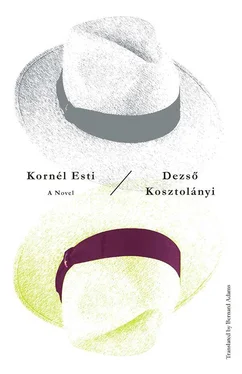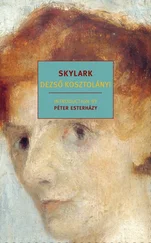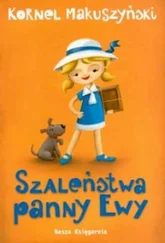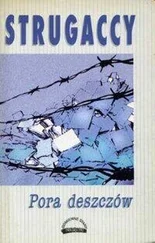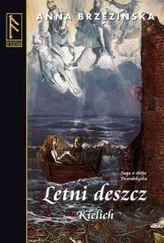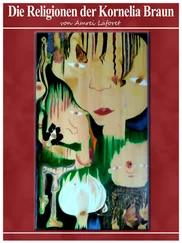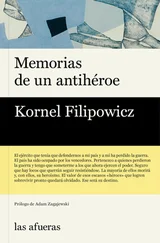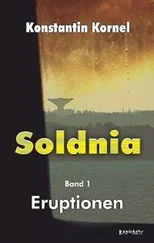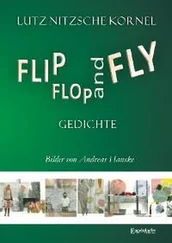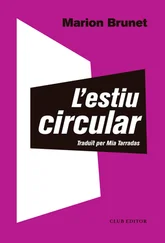The class nodded in approval.
The teacher looked again at the frightened little boy. This time he saw that his face was quite green.
“Are you feeling ill?” he asked, in a kinder tone.
“No.”
“Got a pain anywhere?”
“No.”
“All right,” he said, “go back to your place. Where is your place?”
“Nowhere.”
“Nowhere?” The teacher was puzzled. “ Well, sit down somewhere.”
The little boy turned toward the class. Faces grinned at him, lots and lots of little faces, which blended into a single huge, frightening idol-face. He stumbled unsteadily this way and that. Once more he had to pass the first bench, where there was no room for him. He found a tiny place somewhere in the middle, on the very end of a bench. He could only get one leg onto the seat, the other dangled in space. Anyway, it was better to sit there away from the eyes, to vanish into the crowd.
“Children,” said the teacher, “take your slates and pencils. We’ll do some writing. We’ll write the letter i .”
Slates rattled. He too tried to place his slate on the desk but the surly, swarthy boy at his side pushed it off in an unfriendly fashion. The boy didn’t let him write.
At that he burst loudly and bitterly into tears.
“What’s going on?” asked the teacher.
“He’s crying,” reported the surly, swarthy boy.
“Who is?”
“This boy here.”
All the children looked in his direction. Many stood up to get a better view.
“He’s giving the mice a drink,” they exclaimed.
“Be quiet!” the teacher exploded, striking the table with his cane.
He came down from the dais and went and stood by the little boy. He stroked his face with his warm, tobacco-scented hand.
“Don’t cry,” he calmed him. “Sit properly on the bench, square on. Why don’t you move over for him? There’s plenty of room. There you are, now. Put the slate in front of you, get hold of your pencil. Wipe your nose. Now, we’re going to learn to write. Or don’t you want to learn to write?”
“Yes, I do,” sniveled the little boy.
“Right, then,” said the teacher approvingly.
He went and wrote a letter i on the blackboard.
“Up,” he showed them, “stop, back down and a little hook.”
Slate pencils squealed like little pigs.
The teacher came down from the dais once more. He walked around the room, scrutinizing the squiggles on the slates. He looked at the little boy’s i too. He had written a nice, fine letter. He praised him for it. Now the child wasn’t crying.
“What’s your name?” he asked.
The little boy stood up. He mumbled something very quietly.
“I don’t understand,” said the teacher. “Always speak up and answer so that I can hear what you say. What’s your name?” he asked again.
“Kornél Esti,” said the little boy, firmly and distinctly.
In which, at night on a train, shortly after leaving school in 1903, a girl kisses him on the lips for the first time
WHEN, IN 1903, KORNÉL ESTI WAS DECLARED PRAECLARE maturus in his school leaving examination, his father laid before him a choice: either he would buy him that splendid bicycle for which he had long yearned, or he would give him the money — a hundred and twenty koronas — and with that he could travel wherever his fancy took him.
He decided on the latter. Though not without a little hesitation and soul-searching.
It was hard to be parted from his mother’s skirts. He had grown up in Sárszeg, *among books and bottles of medicine. In the evening, before going to bed, he had always had to convince himself that his mother, father, brother and sister were in bed, in the usual place, and only then could he go to sleep to the tick-tock of the wall-clock. If, however, any of them had gone to visit in the country and happened not to be spending the night at home, he would rather stay awake and wait for their return, which would once more tip everything back into the old, happy balance. The family was for him the refuge from everything that he feared. It surrounded him like a dovecote, stuff y, dimly lit, tacky with rubbish.
On the other hand, he also longed to get away. He had never yet left that Alföld nest where there was neither river nor hills, the streets and the people were all alike, and days and years brought little change. Here were stifling, dusty afternoons and long, dark evenings. Exercise books and calendars filled the windows of the bookshops. His mind was waking, his tastes developing, but second-rate plays were put on in the theater and for want of better entertainment he watched these from a student seat in the rafters. He would have liked to see the world. Most of all, he would have loved to see the sea. He had imagined it while still in primary school, when he had for the first time looked at that smooth, endless blueness on the wall map. So, with an heroic decision, he proposed that come what may he would go to Italy, *and alone.
One dull, hectic day in July he set off. The whole household was up and about at three in the morning. His worn and battered traveling basket had been brought down from the attic and a futile attempt made at mending its lock. He said good-bye with a smile, but his heart sank. He didn’t believe that he would ever return. Everyone went with him to catch the slow train for Budapest. They waved their handkerchiefs, while his mother turned away in tears.
After five hours’ rattling he reached Budapest without mishap. He immediately informed his parents of that fact by postcard. He took a room in a third-rate hotel near the station. There he spent only a single night.
That evening he used to get to know Budapest. Happy, electrified, he set out into the city, this modern Babylon , as he described it in another postcard to his parents. His self-esteem rose because he was going about all by himself. In the National Museum he looked at the antiquities, at the balcony from which Petőfi had spoken, at the stufffed animals. Later he got lost on Andrássy út. A policeman kindly put him on the right road. Map of Budapest in hand, he found the Danube and Gellérthegy. The Danube was big, Gellérthegy high. Both were splendid. Budapest was altogether splendid.
What interested him most of all were the people of Budapest. Everybody going along the street, sitting in a coffeehouse or on a tram, shopping in the shops, was a “Budapest person.” He could tell at a glance that they were very different from the people of Sárszeg, and as like one another in clothes, attitudes, and manners as members of a single family. In his eyes, therefore, a High Court judge, a horse-trader, the wife of a landowner, and a nursemaid were “Budapest people.” This statement — from a higher point of view — is undeniable.
The “Budapest person” was in a hurry and took no notice of him. He found that out immediately upon arrival. The porter who carried his luggage up to the third floor of the hotel likewise belonged to the people of Budapest. He didn’t say a single word to him, expect it though he might, but ill-humoredly deposited his basket on a trestle, muttered something, and simply left. Kornél found this behavior hard to bear, but it filled him with great admiration. He wrote to his parents — a third postcard — that the people here aren’t coarse, in deed, in a certain respect they’re more refined, more attentive than people in Sárszeg . Sometimes, however, they did seem cold, even heartless. No one asked him what at home everyone from the fôispán * down would certainly have done: “Well, Kornél, isn’t Budapest splendid?” “Isn’t the Danube big?” “Isn’t Gellérthegy high?” And then, neither did they look him in the face, so open, so yearning for affection, which at first — for the first few hours — he raised to everyone with such boundless confidence that some involuntarily smiled and laughed together behind his back at the sight of such naïveté and youth until — hours later — he learned that one should keep one’s face straight if one didn’t want to seem ridiculous. At this point the broad, convivial world ceased to be — that sugary toy world, that doll’s dinner party — which he had been so accustomed to in the provinces. Things were quite different from then on: both more and less.
Читать дальше
